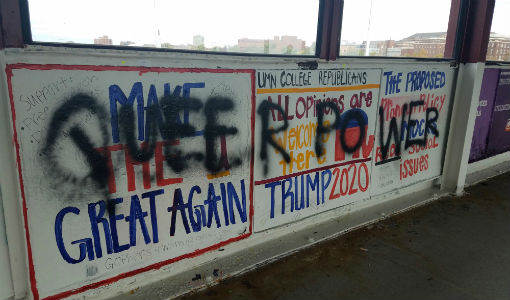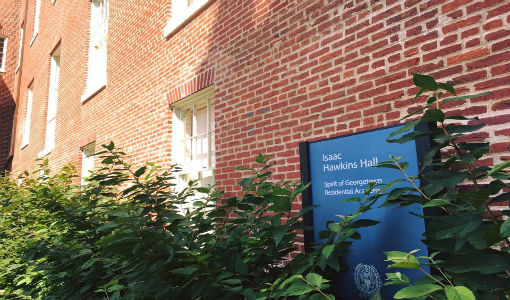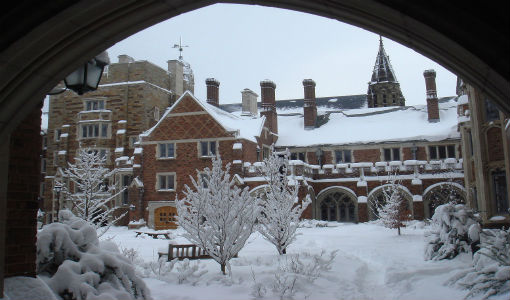Overview
Colleges and universities are built on ideas and are uniquely positioned as crucibles of discourse. They are also communities, with a shared mission to pursue truth and knowledge. Creating a healthy climate for free speech is essential to these pursuits. It requires a commitment to engage with a broad range of perspectives and to support the questioning of accepted wisdom.
See resources by role:
The Law
Public universities are required to comply with federal laws and regulations in the same way that government agencies are required to, and thus can exert less regulatory control over campus climate than private universities can. However, all colleges and universities that receive federal funding are responsible for ensuring that their campuses campuses are free of discrimination and harassment. The two most significant federal statutes regulating speech in higher education are Title VI and Title IX, which prevent discrimination on the basis of race and sex, respectively. The Office of Civil Rights in the Department of Education has stated that these federal regulations are “not intended to restrict the exercise of expressive activities protected under the U.S. Constitution.” Rather, these regulations only apply to unprotected speech that constitutes discrimination and harassment and creates a hostile environment. A hostile environment is created when the harassment is “severe, persistent, or pervasive” and “sufficiently serious to deny or limit a student’s ability to participate in or benefit from an educational program.”
Our Principles
- Administrators must look hard at how physical barriers, historical traditions, inequalities, prejudices, and power dynamics can weigh against openness, and take concrete steps to alleviate those burdens.
- Campus discourse should be predicated on the presumption of respect for differences, including differences of view that cause disagreement.
- Respect entails an obligation to understand what may cause offense and why, and to avoid such words and actions, even if no offense is intended.
- The duty of care involved in understanding different perspectives and learning to anticipate where offense might be caused is heightened for administrators and faculty when they are carrying out institutional duties.
- While violence, threats, and harassment are never appropriate, vociferous, adamant, and even disrespectful argument and protest have their place.
- College should be acknowledged as a time for students to engage with new ideas and participate in robust debates, which can involve testing boundaries and experimenting with forms of speech and activism. As such, consequences for errors of judgment should be commensurate, and geared toward the possibility of learning and future improvement.
- An environment where too many offenses are considered impermissible or even punishable becomes sterile, constraining, and inimical to creativity.
- So-called “free speech zones,” wherein schools limit activities such as pamphleteering or spontaneous demonstrations to contained areas on campus, may violate the First Amendment and contravene principles of free speech.
- Schools should refrain from establishing policies or imposing facially neutral rules that either intend or have the effect of discriminating against speakers based upon the content of their speech.
- Administrators should ensure equitable space and opportunities for diverse political perspectives and thought.


